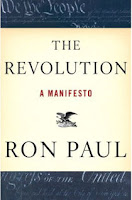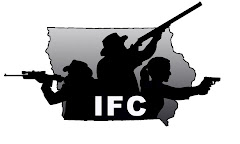 On January 22 an unidentified man assaulted a 7-year-old girl outside of an Iowa City school. The man ( an adult, black male with a shaved head, 5 feet 9 inches and of medium build) ran off and is still at large.
On January 22 an unidentified man assaulted a 7-year-old girl outside of an Iowa City school. The man ( an adult, black male with a shaved head, 5 feet 9 inches and of medium build) ran off and is still at large.Watching the local evening news, I’ve noticed similar stories of street crime coming from Iowa City (I.C.) on a pretty regular basis, at least every month. Mine is a fairly rural area where such events still make the news. The crime scenarios coming from I.C. are usually pretty similar: a pedestrian victim is attacked on or near a street or walking trail. I wondered if I.C. has a crime problem and, if so, why?
Iowa City, as I’ve noted in other posts, is probably the most liberal town in Iowa. This is no doubt due to it being home to the University of Iowa (UI). The University is the city’s biggest employer and is so marbled throughout the community it’s hard to tell were UI ends and the city government begins.
What about I.C. is so liberal? I.C. has led the way in new "health regulations," from public smoking bans to drinking bans. I.C. has been most noticeably supporting (and licking it’s chops about) the prospect of a new Iowa law allowing cities to impose income taxes on it’s citizens. It is proudly home to one of Iowa’s few remaining abortion mills.
The community’s central pillar, UI, is a typically liberal public university. It embraces “diversity” in all its forms, except for white skin. When a black female student was arrested for sending threatening emails in 2000, UI’s then Vice President and spokeswoman Ann Rhodes famously declared that white guys between 25 and 55 are the root of most evil.
The instructor of a required course at UI forced students to watch videos of gay sodomy, even after several protested. (Gays should be allowed to do whatever they want, just don’t force our kids to watch it!) The UI school of law is currently facing a lawsuit alleging that it discriminates against conservatives. (We libertarians might want in on that action.)
Back to crime in I.C.: I wanted to know if the stories I was always seeing on the news were just anecdotal or did I.C. have crime rates higher than others. Looking online I found that neighboring Cedar Rapids had per capita crime rates higher than I.C. in all categories except for forcible rape and aggravated assault.
Believing that these two crimes, particularly rape, might be problematic for college towns, I decided to compare I.C. with the towns housing Iowa’s two other public universities, Ames and Cedar Falls. I used crime statistics for 2006 from areaconnect.com.
Of the three towns, Iowa City had the highest per capita rates in forcible rape, robbery, aggravated assault, and vehicle theft. Ames, home of Iowa State University, led in burglary and larceny theft. University of Northern Iowa's hometown of Cedar Falls didn't lead in any category. (That was surprising since Cedar Falls borders Waterloo, which had relatively high crime rates across the board.) None of the three college towns had any murders in 2006. Confirming my suspicion, all three college towns were above the national average on forcible rape.
I.C. has higher per capita violent crime rates than other similar Iowa college towns. If I was an I.C. taxpayer I would be angry that my city government always had the time and resources to harass smokers, bar owners and Wal-Mart, but can’t keep the streets safe.
If the local government won’t defend its citizens, you would think that they would at least allow them to defend themselves. Not so!
While Iowa allows citizens who have passed background checks and safety courses to apply for a permit to carry concealed firearms, it is up to the county sheriff whether or not to issue the permit. Some sheriffs simply refuse to issue them to anyone. This map from IowaCarry.org shows the issuance policy of each county. As you can see, Johnson County (of which I.C. is county seat and largest city) is red, meaning it is all but impossible for a citizen to get a permit. Of course even if you do get a concealed carry permit, you can’t carry your gun on campus. Only deranged killers like Gang Lu are allowed to do that.
There are reams of statistics suggesting that an armed citizenry lowers crime rates. Denying citizens the means to defend themselves is the exact wrong answer.
A study by the Carter Justice Department found that of attempted rapes, 32% were actually committed. If the woman was armed with a gun or a knife only 3% of the attempted rapes were successful.
When faced with a spree of rape in the 1960s, Orlando Florida set up a course to teach women how to use guns. It was highly publicized in the local press. Orlando’s rate of rape dropped by 88% in one year (while remaining constant in the rest of the state). Those in I.C., who pride themselves on “empowering” women, would never stand for such a course.
As a libertarian, I disagree with liberals on matters of limited government and economic freedom, but I AGREE with them on many matters of personal freedom. So I don’t mean to pick on liberals in general or Iowa City in particular. Rest assured, if I see evidence of a major Iowa town that is as consistently and buffoonishly conservative as Iowa City is liberal (perhaps one that finally outlaws that oh-so-phallic Chapstick) I’ll let you know, dear reader.
In the mean time, Iowa City residents and city council members need to decide whether Wal-Mart or the thugs roaming its streets represent a greater threat to the populace. They might want to ask the parents of a certain 7-year-old girl.






